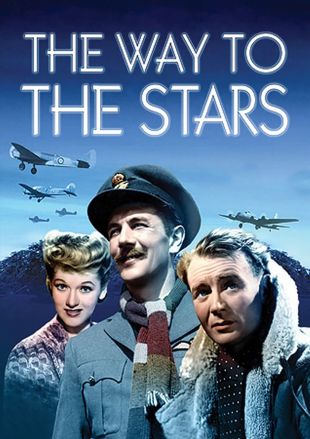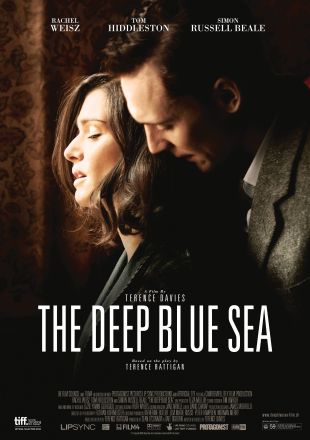Terence Rattigan was that rarity among playwrights: a major theater author who was equally successful as a screenwriter and privileged to adapt his own stage work to the big screen on a regular basis. Born in London in 1911, the son of a career diplomat, Rattigan was of upper-class Irish descent, with renowned scholars and intellects on both sides of his ancestry. Drawn to plays and the theater from an early age, Rattigan was also something of an iconoclast, rebelling as a student at Harrow and Oxford in the '20s and early '30s.
In 1933, he co-wrote a play entitled First Episode, based on his experiences as an Oxford undergraduate, and paid to get it produced. The piece was daring, fast-paced, funny, and good enough to attract the attention of a producer who brought it to London's West End, where it received mixed reviews and ran for nearly four months in 1934.
In early 1936, Rattigan joined Warner Bros. British studio at Teddington for a brief stint as a screenwriter, during which he learned the basics of the profession. Late that year, he found stage success once again with French Without Tears, directed by Harold French. Inspired by Rattigan's experiences in the summer of 1931, the play delighted audiences and critics alike and ran for 1039 performances. The film rights to French Without Tears were sold to producer Filippo del Guidice's Two Cities Films, which gave the directorial assignment to Anthony Asquith, and the screenplay adaptation to Russian expatriate Anatole de Grunwald, with Rattigan himself brought in to assist. To his pleasure, he found that he liked working with de Grunwald and Asquith, and he also discovered that he had more than enough skill as a screenwriter to join that profession.
During the Second World War, Rattigan served in combat as a gunner on Atlantic U-boat patrols while continuing to write regularly. He had his next hit in 1942 with his topical drama Flare Path, based on his combat service, which had a nearly two-year run. And in 1943, with his comedy While The Sun Shines, Rattigan became the first English playwright in history to author two plays with more than 1000 performances in their first productions. And in 1947, Rattigan finally broke through the wall of negative criticism that had dogged his work in America with his drama The Winslow Boy.
Meanwhile, he was establishing himself in movies, where the combination of his plays, Asquith's direction, and de Grunwald's production skills led to a quarter century of screen hits, starting in 1941 with Quiet Wedding. Their best films together included The Way to the Stars (1945), While the Sun Shines (1947), The Winslow Boy (1949), The Browning Version (1951), The Final Test (1953), The V.I.P.s (1963), and The Yellow Rolls-Royce (1964). All were notable movies and on each of them, Rattigan was responsible for adapting the original play. Rattigan also wrote or co-wrote original screenplays for movies and television, earning an Oscar nomination for his script for David Lean's The Sound Barrier (1952)
Rattigan's finest and most enduring work for the screen was probably The Browning Version, which had its roots in his time at Harrow in the mid-1920s. It drew on his memories of one teacher of classical languages and another teacher to whom he was attracted romantically. Rattigan had the misfortune to come of age as a gay man in England of the 1930s, when such matters were still criminalized and prosecuted. He often dealt with his homosexuality by veiling it in his plays -- his heroes would be involved in heterosexual relationships, but the plays often displayed unspoken emotional bonds and loyalty among men that stood in for his real meanings. Additionally, he often displayed a deeply skeptical and dark view of heterosexual marriage.
As Asquith's health declined in the late '50s, Rattigan saw his work come to the screen from other filmmakers, including Harold French and Delbert Mann, who made a brilliant version of Separate Tables in 1958 starring Burt Lancaster. In 1958, he was awarded the rank of Commander of the British Empire, and he received a knighthood in 1971. He continued to write for the screen, including the 1969 remake of Goodbye, Mr. Chips and the 1973 feature The Nelson Affair. His final play, Cause Celebre, in which he explored the homosexual relationships of his youth, opened in London in 1977 and ran for 282 performances. Rattigan died during the run. In a sign of the changes that had taken place in the world during his lifetime, that play -- which would have scandalized the theater world in the '30s -- was brought to television a decade after his death.


/_derived_jpg_q90_310x470_m0/TheWinslowBoy1999-PosterArt.jpg)